
The summer sun beats brightly down on the streets of the picturesque Italian mountain town, but the people who walk them are not on holiday. Amatrice has become a mausoleum.
The town – home to the beloved Spaghetti all’Amatriciana – should have been full of pasta-loving foodies this weekend for the annual festival. But instead, locals sway through the streets – disorientated, confused and disheveled.
READ: A country in mourning begins burying the dead
At least 290 people have died across the region – authorities say at least 230 were killed in this rural town – after a 6.2-magnitude earthquake struck in the early hours of Wednesday morning. Many more remain unaccounted for.
Shattered vistas from Italy's August earthquake
Builder Roberto Partenza’s home was pancaked by the disaster. He described waking up to “a huge sound.”
“Everywhere was shaking,” he said. “I hugged my wife because I thought that was going to be the last moment of my life.”
READ: Before and after photos show impact of the earthquake
They scrambled out from beneath the debris, scooped up their children, along with a few items of clothing, and escaped to safety.
Others were not as lucky.
It’s been a race against time for emergency responders. The town’s isolated location meant that the first people to dig survivors from the rubble, were those like Partenza. He and many others began excavating with whatever tools were available.
“At the beginning we started digging with our hands,” he said. “We could hear sounds of people asking for help.”
“After a while the first rescue teams started to arrive from the area.”
There is now only one route into the once-charming town – a winding circuitous road busy with emergency vehicles hurtling around the small cliff-facing lanes.
Many roads are cordoned off and bridges are perilously unstable, with rock falls making travel more difficult.
At the church in Amatrice, Franciscan monks sit huddled together in the hot summer sun too exhausted to maintain a fa?ade of calm and strength.
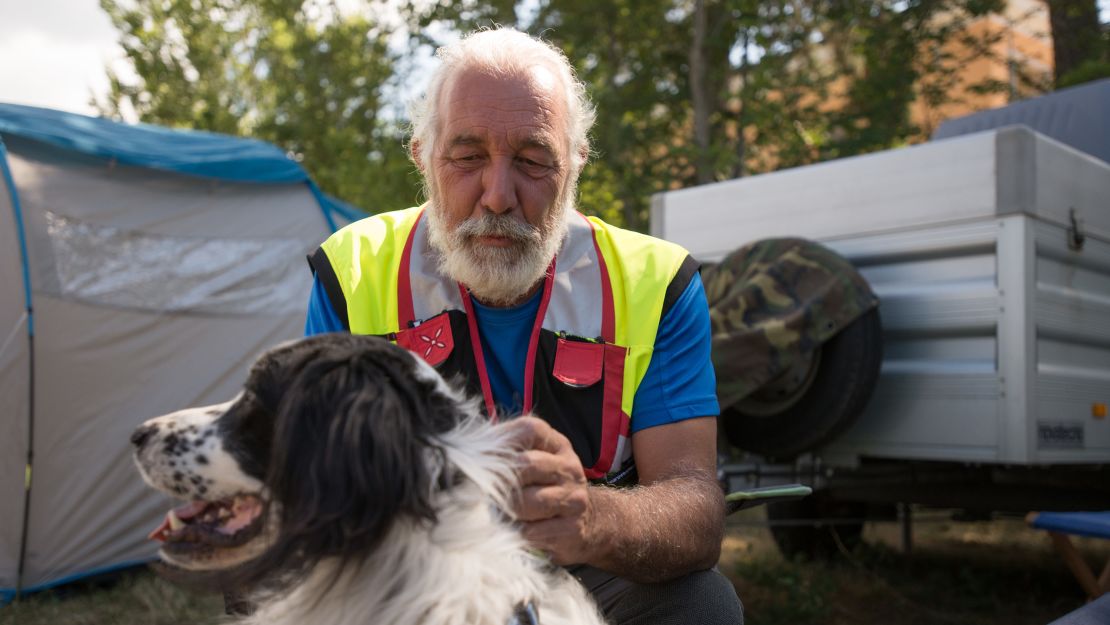
Around 6,600 rescuers are at work in the region, according to authorities, but they know time is against them. With each passing hour, the likelihood of finding survivors diminishes.
READ: How tech is helping rescue efforts
“This city will become a museum city, for people to see that an earthquake happened here,” said Arturo Filippi, an emergency response volunteer with 16 years experience.
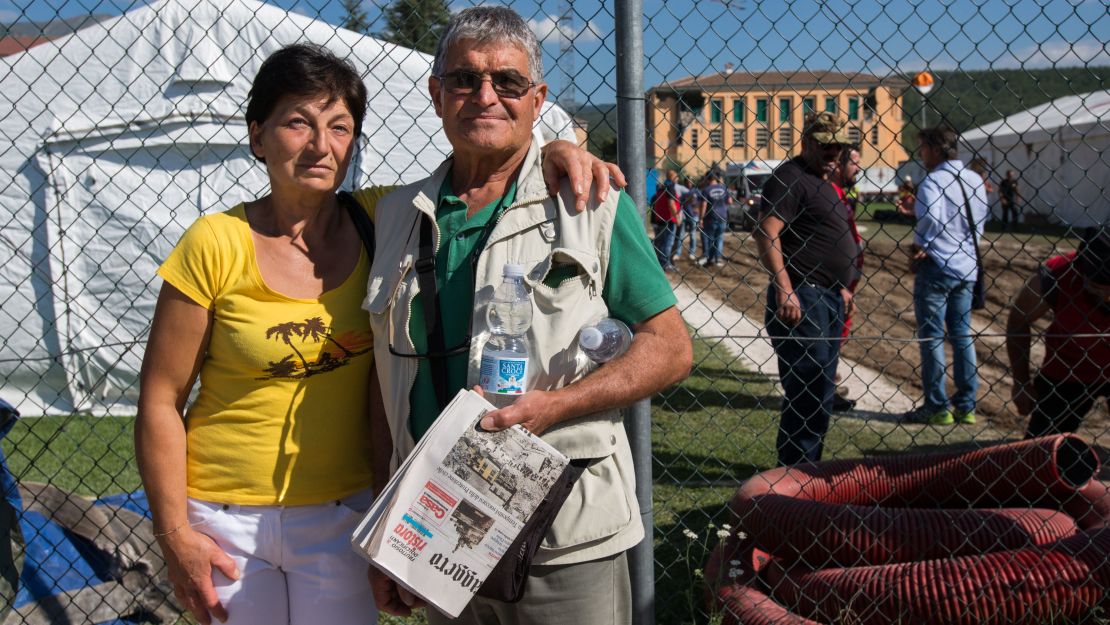
The earth continues to shiver three days on. And with aftershocks, comes the unrelenting fear for residents.
“The future is finished. It’s finished. The future is finished,” said Marissa Di Tommaso, 58, a resident who used to work at one of the local schools.
“My son had two businesses here … Everything’s destroyed.”
Tears fall from her eyes.
“What we do?” she asked. “I wanted to stay here but if everybody leaves … We don’t know.”
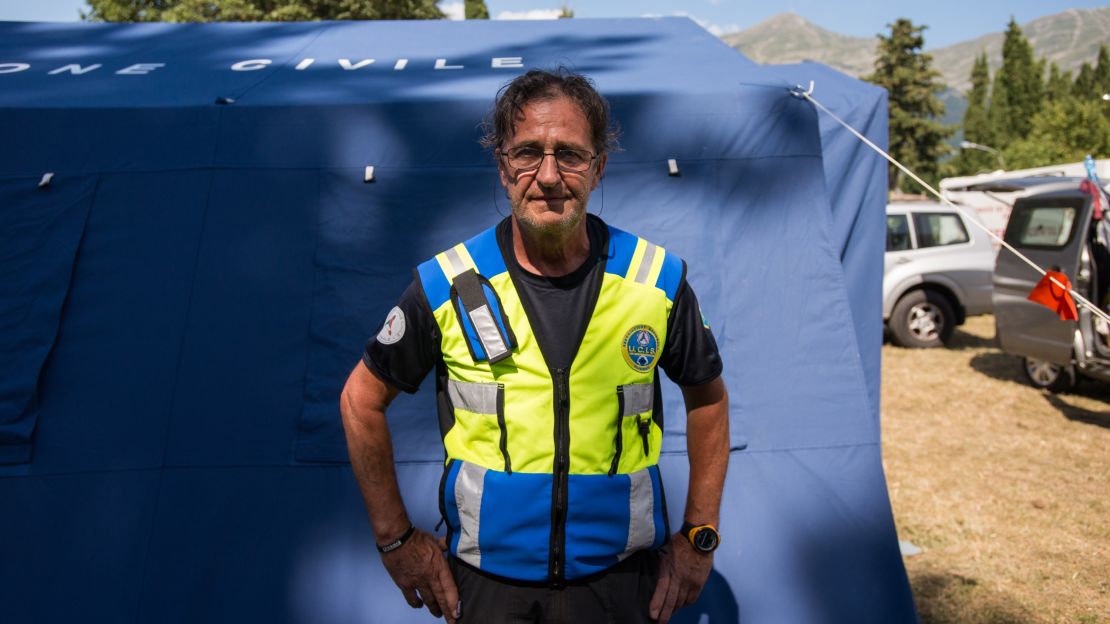
Some have returned to survey the damaged remnants of their homes. They gathered quietly at squares, where women sobbed as they clutched each other, grateful to find their friends had survived.
Men stood in silence staring absently at the detritus at their feet, too upset to speak to reporters.
Afterwards they quietly walked back to one of the few camps set up within the town limits for displaced locals.
![Dominico Betterelli, 33, is a baker who lived in Amatrice before the earthquake destroyed the shop where he worked. He says "there are no words to describe [the quake]. Many deaths, many destroyed houses, a disaster."](https://media.cnn.com/api/v1/images/stellar/prod/160826212715-15-inside-amatrice-restricted.jpg?q=w_1110,c_fill)
Makeshift campsites have sprung up anywhere open space can afford safety. In one park, an untouched playground is surrounded with pitched tents where volunteers lie as they hope to steal just a few minutes of respite.
While a few of the residents remain, most have fled to the safety of nearby cities, such as Rome, to shelter with friends and family.
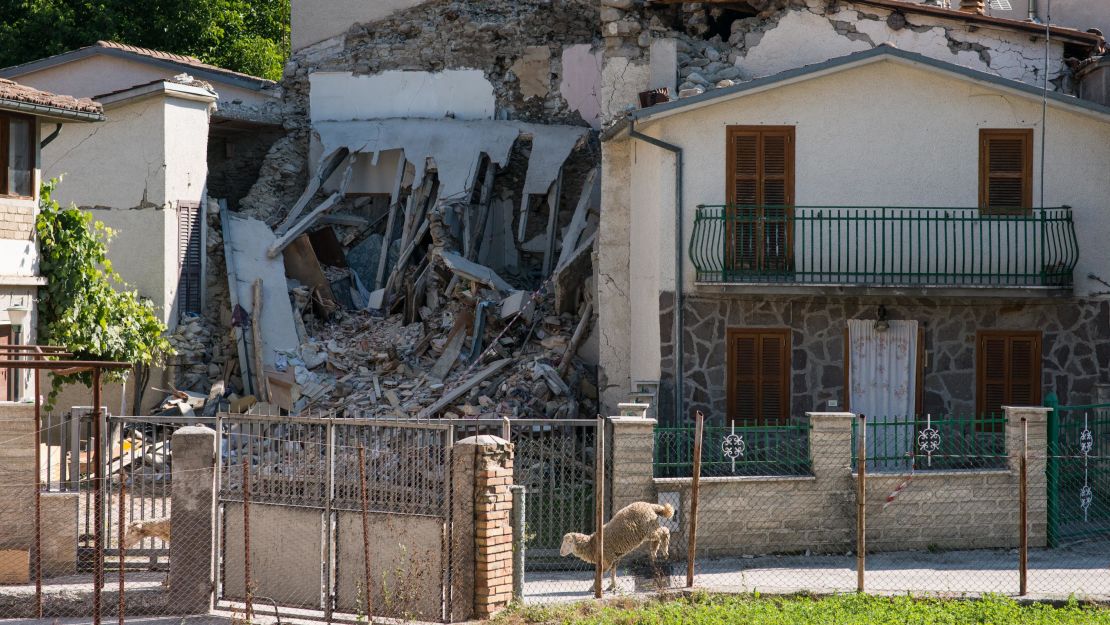
Outside of Amatrice, displaced locals have taken refuge in a number of newly-erected campsites. One sits in a field near the commune of Accumoli, where at least 11 people were killed.
Here AnnaMaria Volpetti, 52, explained that she had been visiting her family’s hometown when the quake hit.
“We are lucky,” she said. “The earthquake was brutal. It came in waves.”
Along with her mother, father, son and daughter, the family have been staying in the camp for a few nights.
In the immediate aftermath of the quake, amid screaming and terror, AnnaMaria and her family were trapped within their house. They waited until neighbors were able to break their door down.
When the quake struck, she said it was like the walls of the house had turned to cardboard.
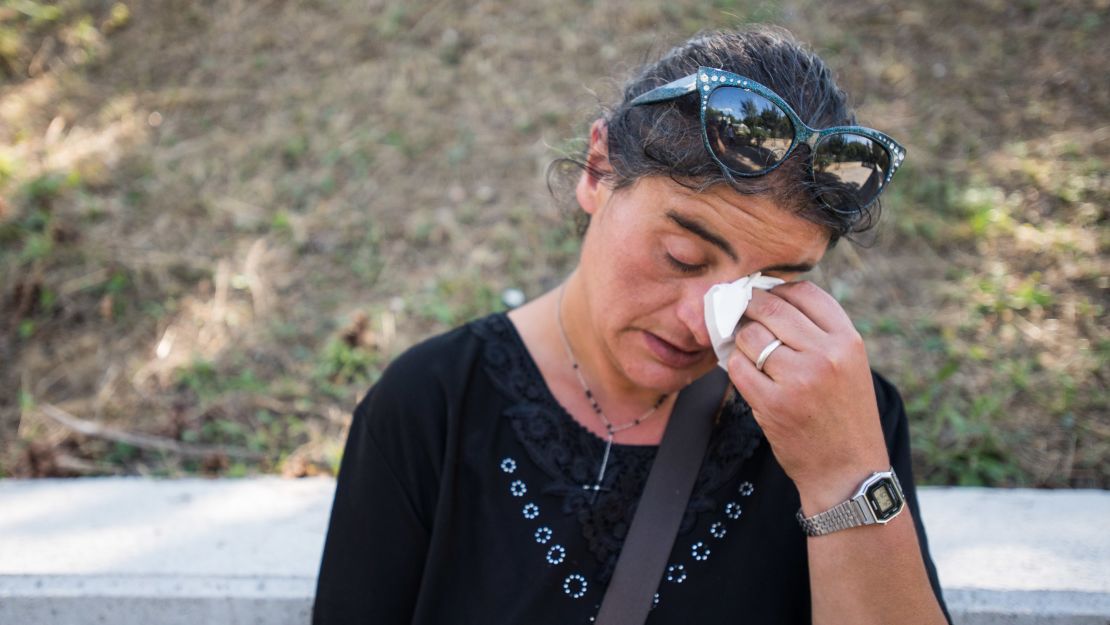
“I am very scared of that house now, I’m not going back in,” AnnaMaria whispered as she recalled the moment.
“I told my father that he should get it demolished … that he has to get a small wooden one.”
She blamed the age of the regions’ buildings for the level of destruction.
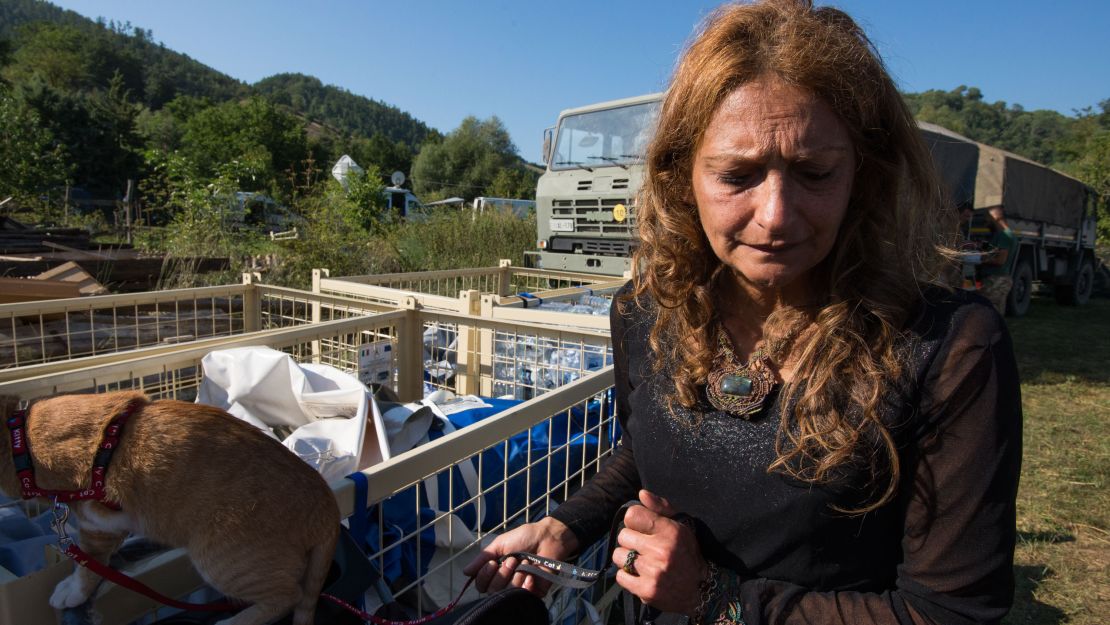
“These houses are very old and were made with stones from the river.”
“It’s sad for everyone,” she said.
“We grew up here for four months a year when we were kids. But those people who live there have had many deaths: friends, relatives … And they don’t have a house to live in.”
Vivek Kemp, Sara Delgrossi and Tim Lister contributed to this report from Amatrice.














